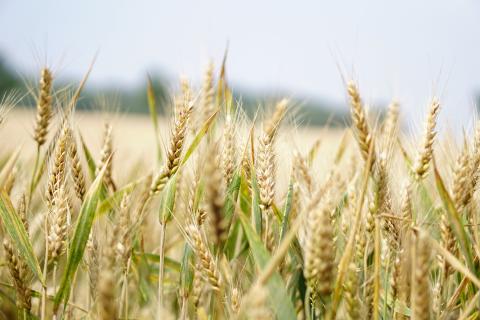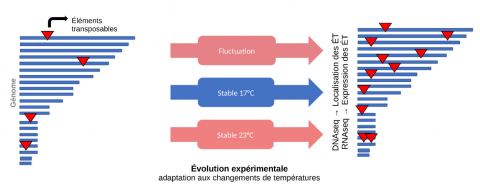
How does a wheat fungal pathogen adapt to climate change?
Environmental changes, including climate change, affect organisms and agro-ecosystems, which must adapt to them. This adaptation also occurs in pest species; their ability to evolve rapidly may even increase their impact on crops.
However, little is understood about how the nature of DNA changes (mutations) influence these evolutionary capabilities. In this project, we will study the influence of mobile genetic sequences (transposable elements) on the temperature adaptation of a wheat fungal pathogen, Zymoseptoria tritici.
In a previous project, independent lines were allowed to evolve at different temperatures under controlled laboratory conditions.
In this project (2022-2023), we wish to measure and analyze the role of transposable element movements during this experimental evolution experiment. This project will therefore require sequencing the DNA - to estimate genetic evolution - and RNA - to assess gene expression, including transposable element activity - of this laboratory material, before and after one year of evolution. The bioinformatics analysis of these data sets, based on the expertise and the software bricks developed by the partners, will make it possible to identify the movements of transposable elements during evolution, and to associate them with adaptive changes.
The pedagogical dimension of the project is ensured by the co-supervision of an M2 internship and the reuse of data in bioinformatics courses.
The project involves 2 laboratories of C-BASC and 2 GS (Biophera and Life Sciences and Health). The researchers are Arnaud Le Rouzic (EGCE, CNRS), Anne Genissel (BIOGER, INRAE), Aurélie Hua-Van (EGCE, UPsaclay) and David Ogereau (EGCE, CNRS).

